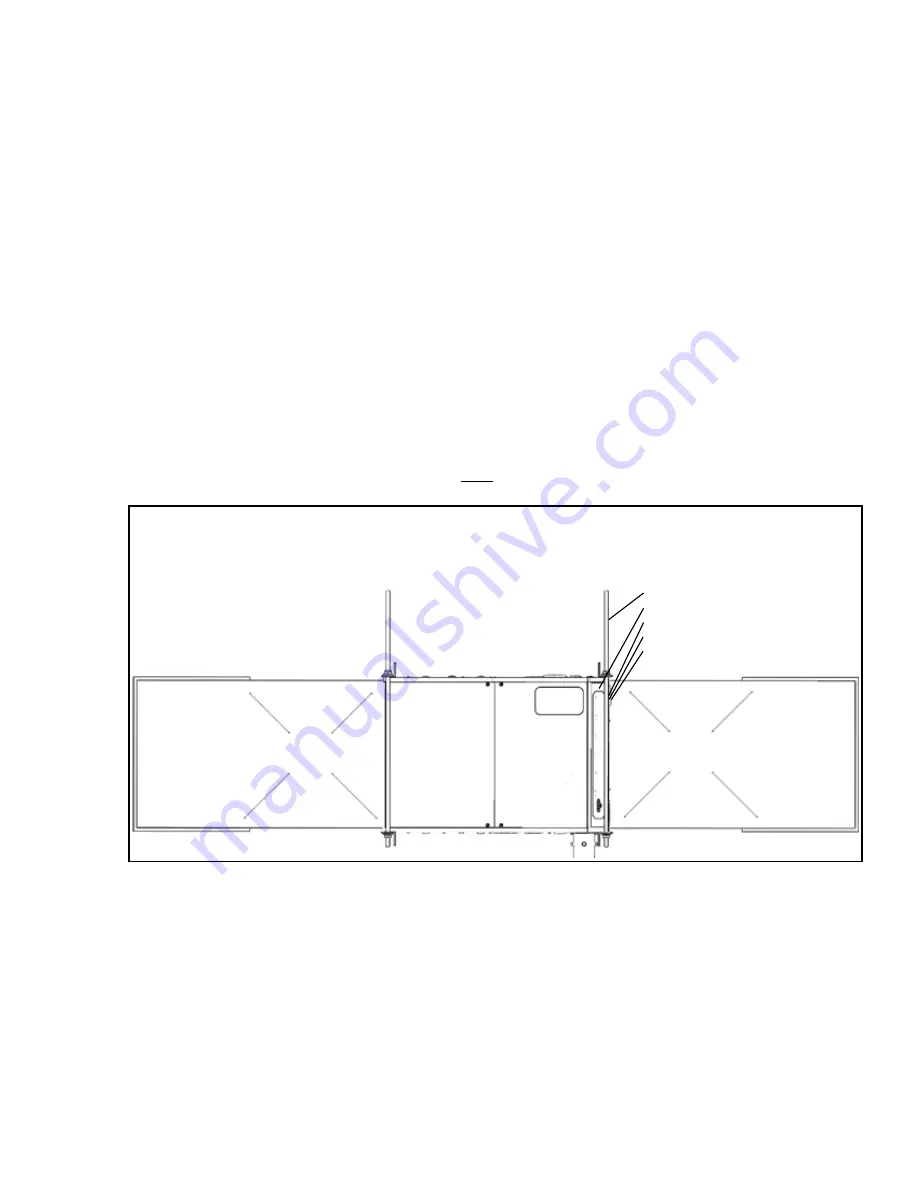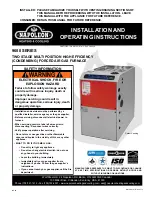
W415-0919 / D / 03.27.13
9
4.0 loCaTIon of UnIT
1. Select a location where the exhaust and combustion air piping can be routed between the furnace and
their terminations with a minimum of lengths and fittings. be sure to check that the proposed termination
location will meet code requirements with respect to location and minimum clearances.
(See venting sec-
tion for minimum and maximum limits.)
2. Select a location as near as possible to the existing or proposed duct system.
3. The furnace location must have provisions for condensate drainage. If a suitable drain is unavailable near
the furnace, a condensate pump must be used. The condensate pump drain tubing must not terminate
outdoors; similar to some air conditioning condensate installations. be sure to select a condensate pump
that has been approved for furnace condensate applications.
4. The furnace location must permit access for servicing and be within the clearance to combustibles guide-
lines as marked on the appliance rating plate.
5. The furnace must be installed on a level surface. It is recommended that the rear of the furnace be el-
evated 1/4” higher than the front to facilitate proper condensate drainage.
6. If the furnace is being installed so that the return air will enter through the bottom, the perimeter of the
furnace must be properly supported.
7. When installed in the horizontal position, the furnace may be supported from the bottom, or suspended.
(Figure 3)
8. In upflow right venting configuration, furnace must drain on the left side.
4.1 GeneRal GUIDelInes
FIGURE 3 - SUGGESTED METHOD FOR SUSPENDING HORIzONTAL FURNACE
RETuRN AIR plENum
AlloW ENough ANglE
IRoN oVERhANg To pERmIT
opENINg ThE bloWER DooR.
• 3/8” ThREADED RoD
• 2” ANglE IRoN
• jAm NuTS
• loCk WAShER
• FlAT WAShER
Supply AIR plENum
4.2 oTheR ConsIDeRaTIons
1. If the furnace is to be located in an area where the combustion air is laden with chemical compounds such
as bromine, chlorine or fluorine, as may be found in swimming pool chemicals, laundry detergents, etc.,
use outdoor air for combustion
. These compounds when exposed to flame, form acids which attack the
heat exchanger and other components.
Exposure to the following substances in the combustion air supply (but not limited to the following) will also
require ouTDooR AIR for combustion:
• Aerosols, particularly CFC based or propelled aerosols
• Air fresheners






































